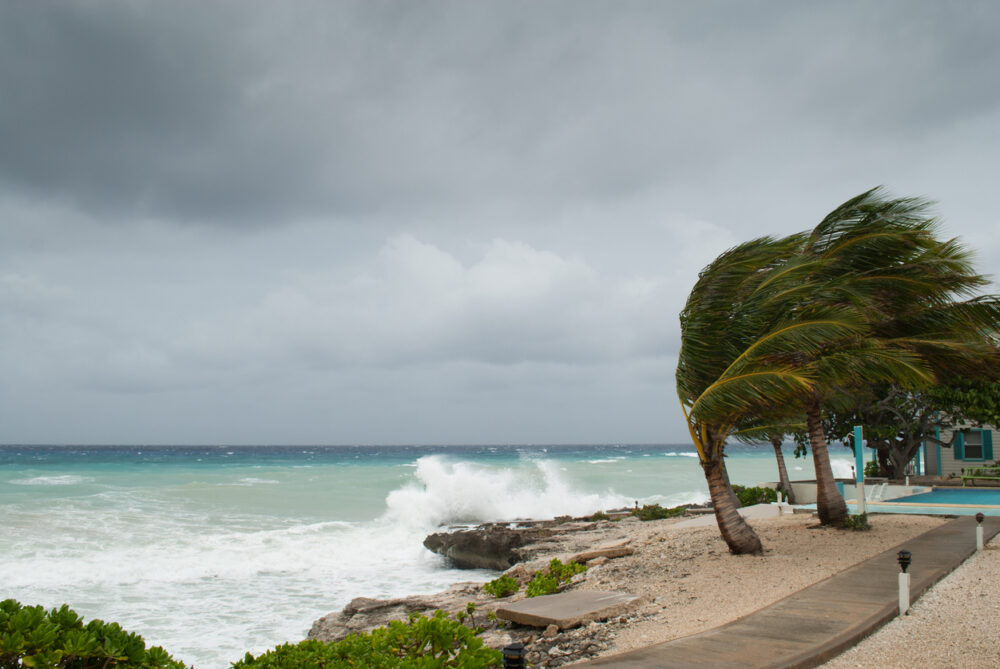A little bit of knowledge can save your trip from disaster.

The world of travel is in a constant state of flux, and staying on top of the latest rules, regulations, and potential risks is more important than ever. As we head into the latter half of 2025, a number of new and urgent travel warnings have been issued that could have a major impact on your plans, from new entry requirements in Europe to severe weather forecasts in the Caribbean.
Being aware of these new developments is crucial for a smooth and safe trip. This is what you need to know before you head to the airport.
1. The ETIAS travel authorization is now mandatory for Europe.

This is the single biggest change for American travelers in 2025. The new European Travel Information and Authorisation System (ETIAS) is now officially in effect. This is a mandatory electronic travel authorization, similar to the ESTA required for visitors to the U.S., that all American citizens must apply for before traveling to most European countries in the Schengen Area.
While the application is simple and the fee is small, it must be done online and in advance. Showing up at the airport without a pre-approved ETIAS will result in being denied boarding, a shocking and trip-ruining surprise for any unprepared traveler, as mentioned by Daily Hive Vancouver.
2. A severe hurricane season is forecast for the Caribbean and Atlantic.

Forecasters at the National Oceanic and Atmospheric Administration (NOAA) have issued an urgent warning for an unusually active and severe hurricane season for the summer and fall of 2025. Due to record-high sea surface temperatures, the forecast predicts a higher-than-average number of named storms and major hurricanes in the Atlantic basin, which includes the Caribbean, the Gulf of Mexico, and the U.S. East Coast, according to Yahoo! Life.
Travelers with plans to visit these regions are being strongly urged to purchase comprehensive travel insurance, including trip cancellation coverage, and to monitor the weather forecasts very closely. This is not the year to take a chance on a last-minute, uninsured trip to the islands.
3. A major dengue fever outbreak is affecting Southeast Asia.

Health officials have issued a warning about a severe outbreak of dengue fever that is affecting several popular tourist destinations in Southeast Asia, including Thailand, Vietnam, and the Philippines. Dengue is a mosquito-borne illness that can cause severe, flu-like symptoms and, in some cases, can be life-threatening. The outbreak is being attributed to an unusually heavy monsoon season, BBC reports.
Travelers to these regions are being advised to take strict precautions against mosquito bites. This includes using a strong insect repellent containing DEET, wearing long sleeves and pants, and sleeping in rooms with air conditioning or mosquito nets.
4. Japan is cracking down on overtourism in Kyoto.

The city of Kyoto has become so overwhelmed by tourists that the local government is implementing a series of new measures to control the crowds. This includes a new ban on tourists entering the private alleyways of the famous Gion geisha district and a new express bus service that will bypass many local stops to move tourists more directly between the main sightseeing spots.
The key warning for travelers is that the city is becoming more difficult to navigate spontaneously. It is now highly recommended, and in some cases necessary, to book tickets and reservations for popular temples, museums, and restaurants far in advance to avoid being turned away.
5. New tourist taxes are being enforced in several popular destinations.

In an effort to raise revenue and manage the impacts of tourism, a growing number of destinations are implementing new tourist taxes. In Quintana Roo, Mexico, home to Cancún and Tulum, the state is now more aggressively enforcing a tourist tax that must be paid before you leave the country. Similarly, Bali has introduced a new international tourist levy.
While these fees are usually small, they are often a surprise to travelers who are not aware of them. It’s important to check the local requirements before you travel and to have a credit card ready to pay any necessary departure or tourism taxes.
6. Airline strikes are threatening summer travel in Europe.

Labor disputes are threatening to cause major disruptions to air travel across Europe this summer. Air traffic controllers in France and pilots and cabin crews at several major European airlines are threatening to go on strike to demand better pay and working conditions. These strikes, if they happen, could lead to thousands of flight cancellations and long delays across the entire continent.
Travelers with flights booked to, from, or within Europe are being warned to monitor the news closely and to have a backup plan. It is also another strong reason to have good travel insurance.
7. Peru’s Machu Picchu ticketing system is causing chaos.

The system for buying tickets to the ancient site of Machu Picchu has undergone a recent and chaotic overhaul. The new, privatized online system has been plagued with glitches, and the number of tickets available is extremely limited and selling out months in advance. This has left many tour operators and independent travelers scrambling to secure entry passes for their clients.
The urgent warning for anyone planning a trip to Peru is to not assume you can buy a ticket when you arrive. You must book your Machu Picchu ticket from the official source as far in advance as possible to avoid a devastating disappointment.
8. A measles outbreak in parts of Africa and Europe.

The World Health Organization has issued a warning about a resurgence of measles in several regions, including parts of Europe and Africa, due to a decline in vaccination rates. Measles is an incredibly contagious and dangerous disease. The CDC is urging all international travelers to make sure they are fully vaccinated against measles, mumps, and rubella (MMR) before their trip.
This is especially critical for infants who are too young to be vaccinated and for anyone who is not sure of their vaccination status. It is a simple and effective preventative measure against a completely avoidable disease.
9. A rental car shortage is expected in popular summer destinations.

Due to ongoing supply chain issues, the global rental car fleet has still not fully recovered to pre-pandemic levels. This is expected to create a significant shortage of rental cars in popular summer destinations like Italy, Ireland, and many U.S. national parks. This will lead to extremely high prices and a complete lack of availability for those who wait too long to book.
The warning for travelers is to book your rental car at the same time you book your flights, not as an afterthought. If you wait until the last minute, you may find that there are no cars available at any price.
